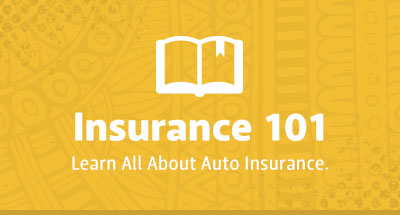Full Coverage Car Insurance
Full Coverage Car Insurance in AZ
“Full coverage” car insurance in Arizona means having a combination of the state-required liability insurance, plus the optional comprehensive and collision coverages.
“Full coverage” is not an actual insurance policy. It’s a commonly used phrase describing a group of coverages that includes more than the minimum required state coverage. Understanding what “full coverage insurance” means is important for any driver, but especially for high-risk drivers, who are more likely to be involved in accidents.
When you have “full coverage”, your policy may help offset the costs of more damages for a covered accident than the minimum liability insurance policy would. Access Auto Insurance Agency of Arizona, LLC (Access Auto) has experience working with drivers looking for “full coverage” in Arizona. Our agents can help with any questions regarding policy packages.
Read on to find out what makes up a “full coverage” policy in more detail.
What is “full coverage” car insurance?
“Full coverage” car insurance in Arizona is usually made up of the following:
1. Liability insurance
Liability insurance or coverage is the minimum coverage required in Arizona. Liability coverage helps pay for damages you may cause to other people or their property when a covered accident happens. In Arizona, the required liability coverage is known as 25/50/15, which means you need an insurance policy that covers:
- $25,000 for bodily injury or death to another person
- $50,000 total for injury or death to one or more people per accident
- $15,000 for damages to another person’s car or property
Here are the optional auto insurance coverages you can add to your “full coverage” policy:
2. Collision coverage
Collision coverage, as its name implies, helps pay for repairs or replacement of your vehicle when you are involved in a covered collision.
For example, if you accidentally backed up into another vehicle and your vehicle is damaged, collision coverage may help pay for the car repairs. Or, if you lose control and crash into a tree, your collision coverage may help cover the costs to your vehicle.
Collision coverage has a deductible. This is the amount you pay before your policy starts to cover costs. For example, if your collision deductible is $1,000, your insurance policy will kick in after you pay that amount. Consider this when choosing a deductible, since this is money that comes out of your pocket.
3. Comprehensive coverage
Comprehensive coverage helps pay for damages to your car caused by accidents or events other than collisions, such as:
- Theft and vandalism
- Falling objects
- Natural disasters such as tornadoes, floods, severe storms, etc.
- Fires
- Damage done to your car by animals
4. Optional coverage add-ons
Some drivers choose more extensive coverage by adding the following to their policy:
- Rental reimbursement: If your car is undergoing repairs due to a covered accident, this coverage helps pay for a rental.
- Roadside assistance: This coverage offers assistance for blown tires, getting locked out of your vehicle, towing services, etc.
- Arizona law also requires insurance companies to offer drivers Uninsured Motorist (UM) coverage and Underinsured Motorist (UIM) coverage. UM and UIM help cover the costs of your own medical bills when you get into a covered accident with an at-fault driver who has no insurance or not enough insurance.
Why high-risk drivers in Arizona need “full coverage”
A “high-risk driver” is one who is more prone to traffic violations. These violations may include speeding past the speed limit, DUIs (driving under the influence), at-fault traffic accidents, etc. Some insurance companies may also consider someone high-risk if they’re a new driver or have a low credit-based insurance score. But this doesn’t mean that their options are limited.
If you are looking for an insurance policy as a high-risk driver, consider more extensive coverage than just the required minimum liability coverage. If you were to experience an accident or collision, the minimum coverage won’t help you pay for damages to your own vehicle.
“Full coverage” can help high-risk drivers since, when covered accidents or events take place, the driver pays less out of pocket for repairs and replacements to their own car. Additionally, at-fault drivers are responsible for costs that go beyond their insurance limits. This could result in high out-of-pocket costs if you only carry the minimum liability insurance.
“Full coverage” also offers protection against vandalism, theft, and natural disasters through comprehensive coverage.
You can speak with one of our car insurance agents in Arizona if you have questions about the insurance options available to you.
“Full coverage” auto insurance in Arizona vs. state minimum requirements
As stated above, “full coverage” auto insurance goes beyond the Arizona state requirements. It includes:
- Liability coverage: The minimum coverage required in Arizona is $25,000 for injuries or death to another person, $50,000 total for injury or death to one or more people per accident, and $15,000 for damages to another person’s car or property.
- Comprehensive coverage: Helps cover costs of damages other than collision you experience when covered accidents or events happen.
- Collision coverage: Helps pay for the costs of repairs or replacement of your own vehicle when a covered accident happens.
If you are leasing or financing a vehicle, some leasing companies or auto lenders may require you to get full coverage.
Average cost of “full coverage” auto insurance in Arizona
In Arizona, the average price of "full coverage" auto insurance is $1,626 per year. While this is the average, how much you will pay depends on various factors. For instance, high-risk drivers often pay more for “full coverage.”
These factors affect how much you pay for auto insurance:
- Your driving record: Drivers with clean driving records will often pay less than a driver with a less-than-perfect record. Experienced drivers can also expect to pay less than new drivers.
- Location: Drivers in cities or counties with more traffic and higher accident rates often pay higher premiums. For instance, in Phoenix, the accident rate is 50% higher than the national average.
- Your vehicle type: Luxury vehicles often cost more to insure. If you’ve added custom modifications to your vehicle, this may also increase your premiums.
- Coverage limits: The limits are how much your policy pays in case of a covered accident. Higher limits usually mean higher premiums, but also lower out-of-pocket costs in the case of covered accidents or events.
- Insurance company: The cost will also depend on the carrier and policy you choose, as different insurance companies have different package prices.
Here are some tips that have helped drivers lower their premiums:
- Take a defensive driver course: In Arizona, some insurance carriers may offer you a discount for taking a defensive driving course. Taking one is also helpful if you’ve had an eligible traffic violation.
- Choose a higher deductible: A higher deductible usually lowers your premiums. However, check that you can afford this deductible, since you’ll have to pay it before the insurance coverage kicks in for a covered accident.
- Maintain a clean driving record: Insurance carriers often offer discounts for experienced drivers with good records.
- Shop around: Research quotes so you can find a policy that fits your budget. Access Auto Insurance works with more than twenty insurance carriers and can do the price shopping for you!
How to get “full coverage” car insurance in Arizona
To find the best “full coverage” deal, shop around and get insurance quotes from local insurance agencies. Comparing various premium prices can give you a more accurate view of which insurance policy adheres to your budget.
You can also try contacting insurance agents directly. Access Auto has Spanish bilingual agents who can help you find a budget-friendly policy.
Get a free quote online, call us at 602-922-3595, or stop by a local store to speak with an experienced agent.
Frequently asked questions (FAQ)
Do I need “full coverage” if my car is paid off?
If your car is paid off, getting “full coverage” depends on your preferences. For instance, if you can’t afford to pay for repairs or replacements after a covered accident or event or if you live in an area with high accident rates in Arizona, “full coverage” might be the more financially beneficial choice for you.
Will “full coverage” lower my risk classification over time?
Having “full coverage” doesn’t directly change your high-risk driver classification. However, if you maintain a clean record free of violations for an extended period, take a defensive driving course, and maintain coverage, insurers may reassess your risk level.
Can I still get “full coverage” with a bad driving record?
Drivers with a less-than-perfect driving record can still get “full coverage” in Arizona. The price of your premiums may be higher than for those with clean records. Access Auto works with different carriers who offer various options for drivers, including those with a non-perfect record.
Final thoughts
“Full coverage” helps offset the financial costs of covered events and accidents. Many drivers choose “full coverage” for greater peace of mind. High-risk drivers can also choose “full coverage” so that they don’t have to deal with steep out-of-pocket expenses when accidents happen.
If you’re looking for affordable, “full coverage” options in Arizona, get a quote with Access and speak with a knowledgeable agent. Contact us today at 602-922-3595 or get a free quote online!
Disclaimer:
This material is for general informational purposes only. Products, services, and discounts referenced herein are not available in all states or in all companies. All statements are subject to the terms, exclusions, and conditions of the applicable policy. In all instances, current policy contract language prevails. Coverage is subject to individual policyholders meeting the insurer's underwriting qualifications and state availability. Other terms, conditions, and exclusions may apply.
Disclaimer:
These descriptions are meant to assist you in determining your auto insurance needs. These are not complete descriptions and do not constitute an insurance contract or coverage for specific losses. For a complete description, please consult your policy contract or contact your insurance agent.






